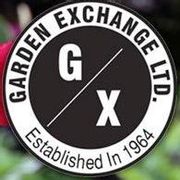
You want your lawn and garden to be strong, healthy, and beautiful. If you aren’t using fertilizer, your plants are missing out on the essential nutrients they need to thrive. Here’s what you should know about feeding your plants, and the difference between chemical and organic fertilizer.
How Fertilizer Benefits Your Plants
Plants get the nutrients they need from soil; however, it can become depleted of its nutrients over time. This means your plants won’t have enough of the building blocks they need to grow.
 Essential building blocks for plants include nitrogen, phosphorus, and potassium. Plants use these nutrients to produce new tissues, grow roots, and resist diseases. Most commercial fertilizers contain these chemicals in varying amounts. The exact ratio of nitrogen, phosphorus, and potassium you need depends on the soil. Point yourself in the right direction with a soil test and by talking to a professional at your local garden shop.
Essential building blocks for plants include nitrogen, phosphorus, and potassium. Plants use these nutrients to produce new tissues, grow roots, and resist diseases. Most commercial fertilizers contain these chemicals in varying amounts. The exact ratio of nitrogen, phosphorus, and potassium you need depends on the soil. Point yourself in the right direction with a soil test and by talking to a professional at your local garden shop.
Chemical & Organic Fertilizer
Organic fertilizer is made from plant or animal sources, such as chicken or steer manure and calcium carbonate. Chemical fertilizers go through a manufacturing process, which makes their nutrients more readily available to plants. This means that your plants will be able to absorb essential nutrients more quickly. However, you’ll have to monitor your soil regularly and take care to avoid over-fertilizing your garden. Organic fertilizer is different because the nutrients are released slowly into the soil, which stimulates the growth of beneficial microbes and improves soil structure.
If you aren’t sure whether chemical or organic fertilizer best suits your plants’ needs, speak with an expert at Garden Exchange in Hilo, HI. This family-owned garden store offers the best products for a beautiful, healthy lawn, and their experienced team will be happy to answer your questions. Visit them online to learn more about their fertilizer options, or call (808) 961-2875 to ask about their weekly specials.
About the Business
Have a question? Ask the experts!
Send your question

